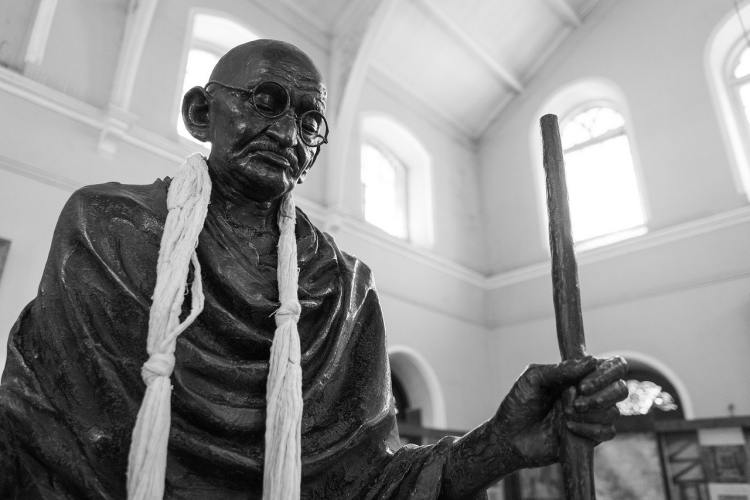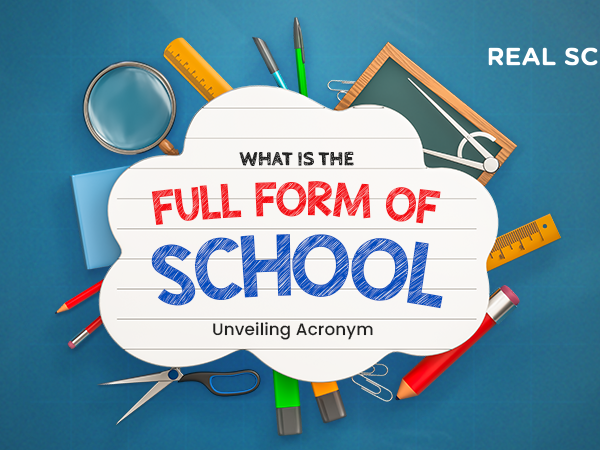Gandhi Jayanti commemorates the birthday of Mohandas Karamchand Gandhi, often known as Mahatma Gandhi or Bapuji, the Father of the Nation. Gandhiji was a nonviolent speaker, thus this day is known across the world as the International Day of Non-Violence. He is a peace and truth symbol.
Gandhi Jayanti is an important event for every school across India. Children participate in various competitions and programs. Speech on Gandhi Jayanti for kids is an event that attracts many students.
So in this article, we discuss the history of Gandhi Jayanti, some ideas for speech on Gandhi Jayanti in English, and two sample speeches.
Learning courses for your kids! Get free trial here
History of Gandhi Jayanti
Gandhi Jayanti is held on October 2nd to commemorate the birth of Mohandas Karamchand Gandhi, also known as Mahatma Gandhi. He was born in Porbandar, Gujarat, on October 2, 1869. So when you deliver a speech on Gandhi Jayanti for school, it is important to know the history and significance of Gandhi Jayanti.
Several civil rights movements across the world were influenced by his nonviolent approach. India’s greatest leader in the freedom struggle was Mohandas Karamchand Gandhi. He was a successful leader of India’s nonviolent anti-British campaign, which inspired numerous civil rights organizations across the globe and several civil rights movements across the world were influenced by his nonviolent approach.
After studying law, Gandhi travelled to South Africa to represent a client. Gandhi returned to India and joined the Indian National Congress, where he spearheaded campaigns for farmers, peasants, and labourers across the country. He also campaigned against caste prejudice and for the advancement of women’s rights.
He was a key figure in India’s liberation struggle, leading some of the country’s most significant movements. Through the Dandi March in1930, he urged Indians to breach the salt prohibition, giving them hope that they might stand up to British power. In 1942, he also headed the Quit India movement.
His Nobel work and philosophy earned Gandhi the title of ‘Mahatma,’ which translates to ‘Great Soul.’ His beliefs and philosophy gained him worldwide acclaim.
Gandhi became a worldwide icon as a result of his passive opposition to British authority and remarkable skill for motivating and persuading popular personalities. He led India to the non-cooperation movement, the Salt March, Swaraj, and a slew of other nonviolent anti-British protests. He also supported the concept of ‘Swadeshi’ as a means of achieving economic freedom.
Mahatma Gandhi’s outstanding personality is honoured by Gandhi Jayanti. It’s a day to honour his contributions and principles. Parents should always consider explaining to their children the significance of Gandhiji’s contribution to our nation’s liberation and prosperity.
Also, read Personality Development Activities for Children: Let your kid take over the stage
Ideas to Prepare Speech on Gandhi Jayanti in English
Each year on the 2nd of October, schools across India host a variety of programs to commemorate Gandhi’s birthday. Children from several institutions take an active part in the Gandhi Jayanti celebrations with excitement. Speech on Gandhi Jayanti in English has always got irreplaceable importance on this special occasion.
So let’s figure out some of the most effective ideas to prepare a speech on Gandhi Jayanti in English.
1. Personal Life
Mahatma Gandhi was born at Porbandar, Gujarat, on October 2, 1869. Gandhi’s legs used to shake when he was called to talk in front of a big crowd in London, where he studied to be a lawyer. His tributes claimed that the gentleman had evolved from a modest, shy lawyer to India’s prominent voice who had guided the country to independence as he grew older.
His battles to overcome adversity might be an inspiring theme for speech on Gandhi Jayanti for school.
2. Movements
Mahatma Gandhi was a key figure in significant political movements such as the Dandi March, Quit India Movement, and Non-Cooperation Movement, all of which contributed to India’s independence. Millions of citizens protested using Gandhi’s nonviolence and peace beliefs, and they finally recovered their long-lost independence. Gandhi’s ability to express his thoughts and opinions helped to establish him as a notable leader.
His ability to motivate kids to embrace a more positive and peaceful perspective is undeniable. Including facts will increase the beauty of speech on Gandhi Jayanti for kids.
Learning courses for your kids! Get free trial here
3. Principles and Quotes
Mahatma Gandhi, affectionately known as “Bapu” left a legacy of quotations and ideas that are still held in high regard today. His motivational words and beliefs drew people in immediately and inspired them to live lives guided by strong principles. Gandhi’s autobiography has been hailed as one of the most important, inspiring, and heartwarming books ever written and he lived a commendable life while working tirelessly to realize the country’s aspiration of freedom.
4. Message
When a country’s young generation gathers together, they can move mountains and achieve everything they set their minds to. Gandhi was a firm believer in a nation’s young being accountable for its elevation and progress. The youth bear the burden of the country’s obligations.
Sentiment, action, and solidarity bring the people of a country headed by the next generation together. Every student and instructor will pay close attention to you if you choose Gandhi’s message to the youth as a speech topic. Including quotes and messages in a speech on Gandhi Jayanti for kids in preschool can also be encouraged.
Also read: What are Personal Factors in Child Development? Personality Development for Children
Small Speech on Gandhi Jayanti
Students in grades 1, 2, 3, 4, 5, and 6 will benefit from a small speech on Gandhi Jayanti. Given below are samples of small speeches on Gandhi Jayanti for kids.
1. Speech 1
Good morning, everybody! My name is —-, and we’ve met here to commemorate Mahatma Gandhi’s birthday. This year marks the 152nd anniversary of Gandhi ji’s birth. Netaji Subhash Chandra Bose named him “Father of the Nation” in honour of his battle for India’s independence.
We also refer to him as ‘Bapu.’ Gandhi Jayanti is observed every year on October 2nd in India as respect to him, who dedicated his life to India’s independence via the use of his powerful weapon, “non-violence.” This day is observed as International Day of Nonviolence not only in India but also around the world.
Let’s all remember him today, on his birthday, and rejoice with happiness and delight on this day. His life served as an example to all of us, and the efforts he made are now our responsibility. To honour the Nation’s Father, let us contribute to the growth and development of our country.
Allowing India to fall is a waste of their labour and pains. On this historic day, even our Prime Minister, Mr Narendra Modi, has launched the Swach Bharat Abhiyan to keep our society clean.
A speech is nothing enough to convey Mahatma Gandhi’s ideals and deeds. However, as the country’s future leaders, we can honour him by living our lives according to his values of truth, peace, and nonviolence, and leading our country to greatness.
Jai Bharat, Jai Hind!
Also read: Story Writing for Kids: A Comprehensive Guide to Train Your Kids to Write Well
2. Speech 2
Respected teachers, parents, and my dear friends. Good morning everyone.
On this Gandhi Jayanti, I come before you with great pleasure and respect to share a few words about Mahatma Gandhi, the father of our nation. Gandhiji is the pride of every Indian, a hero who was magnificent enough to inspire the whole globe while remaining humble enough to wear only a dhoti.
Mohandas Karamchand Gandhi was born in Porbandar, India, on October 2, 1869. Putlibai and Karamchand Gandhi were his parents. He went to school at Porbandar, then Rajkot. He married Kasturba when he was 13 years old.
He moved to London to study law in 1888. In the year 1891, he became a lawyer. Gandhi moved to South Africa to practice as a lawyer a few years later when he was 23 years old.
Gandhiji had numerous experiences in South Africa that shaped him into a powerful and fearless leader who opposed injustice. One such instance was being kicked out of a train’s first-class compartment despite having a first-class ticket, simply because he was an Indian. Gandhiji rose to prominence as the leader of the Indians in South Africa during the following few years. Gandhiji employed ‘Satyagraha,’ or nonviolent resistance, to combat injustice for the first time in South Africa.
Gandhiji came back to India in 1914 after serving 20 years in South Africa. He quickly rose to prominence in India’s struggle for independence from the British. He was the driving force behind the ‘Salt Satyagraha’ and the ‘Quit India Movement.’ He was arrested and imprisoned several times, yet he never gave up. When the British handed India independence in August 1947, his efforts were rewarded. For India, it was a wonderful day, but it did not stay long.
Sadly, Mahatma Gandhi was assassinated by Nathuram Godse on January 30, 1948. Thus came to an end a life that would forever alter the course of our country’s history. A life dedicated to demonstrating that love and peace can triumph over evil, hatred, and violence.
Dear friends, in today’s world, when violence and injustice abound, Mahatma Gandhi stands out as a beacon of hope, showing us how to live. Will we live our lives by his ideals of truth, peace, and nonviolence? Will we live a life of simplicity rather than a life of waste and opulence?
The answer is an emphatic ‘Yes.’
Thank you very much. Jai Hind!
Also read: How to Speak English with Kids? 6 Key Strategies to do it the Right Way
Summing Up
Despite their age, every kid should be encouraged to participate in speech competitions at the Gandhi Jayanti celebration. It is a great opportunity for children to improve their self-confidence and also to learn more about our Bapuji. In general, the skills that your child will learn in public speaking will automatically benefit them in other aspects of life.
The majority of schools, colleges, and universities need some form of presentation. Your child will not have any problems in the future if they have a strong public presence.







